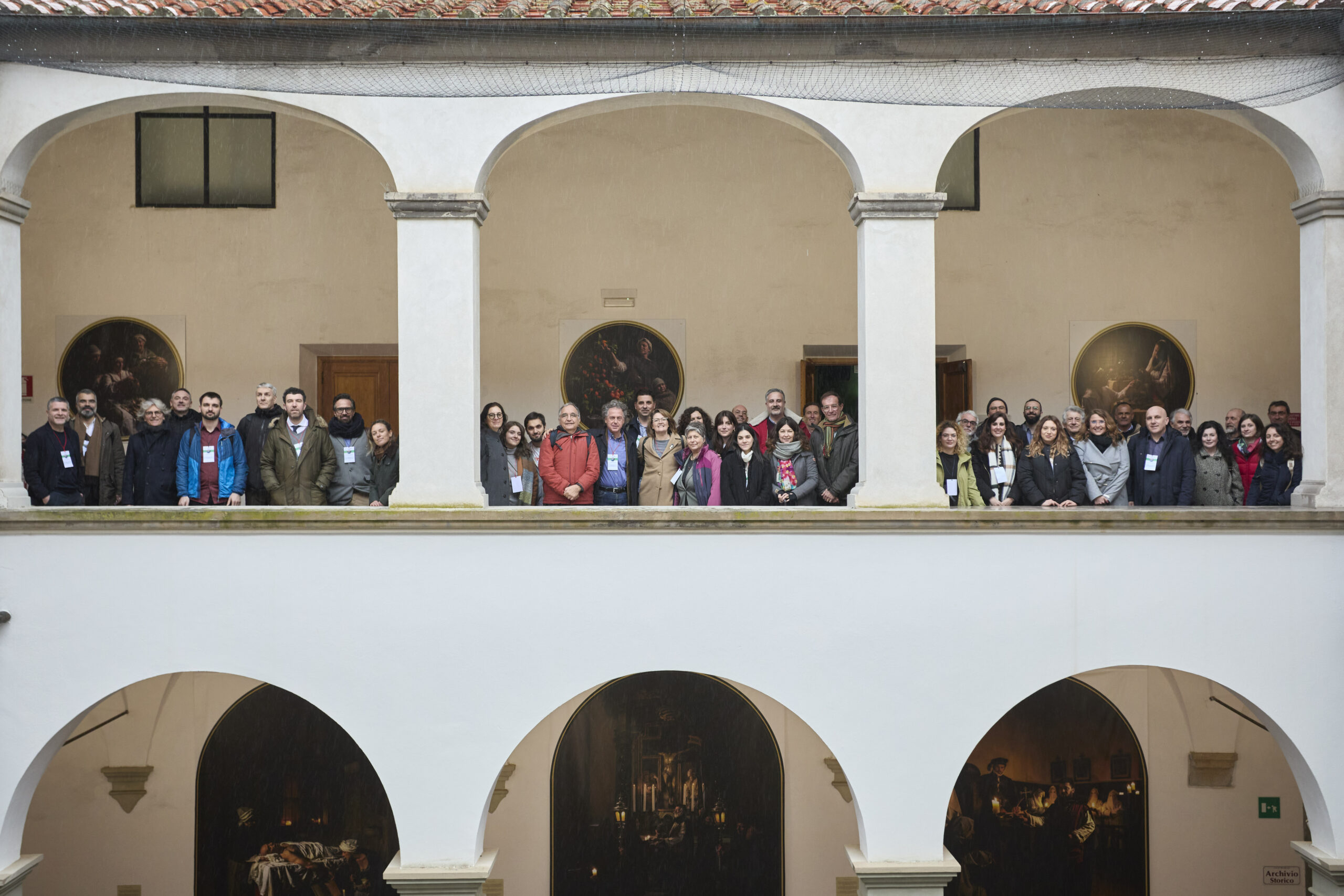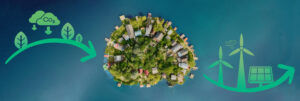
Results – CO2 PACMAN 3rd Rooting Lab
Cooperation, innovation and sustainability
for Climate Neutrality on the Elba Island
Siena, February 25 2025 – The first day of the 3rd Rooting Lab of the CO2 PACMAN project, funded by the Interreg Euro-MED program, concluded on February 11th in the spaces of Sala De Laugier and La Gattaia (Portoferraio) on the Elba Island. The entire event, which gathered around seventy participants (including partners, institutional representatives, and small and medium enterprises), was structured over three days of meetings and discussions, with stops on Elba (February 11-12) and in Florence (February 13). The project’s goal is to promote sustainable and resilient communities through strategic tools and effective policies in the field of decarbonization.
In European cooperation projects, Rooting Labs aims to enable a concrete and effective engagement with specific pilot territorial realities. This was the case during the Lab on Elba, where local entities showed great willingness to create synergies aimed at developing effective solutions for the ecological transition. During the session in Portoferraio, the project was presented to local administrators and citizens, initiating a constructive dialogue on the opportunities for actions and funding for climate neutrality.
Curzio Cervelli, Coordinator of the Interreg Euro-MED programme Joint Secretariat, emphasized the importance of involving local institutions, highlighting how the active participation of the Municipality of Portoferraio represents an added value for the CO2 PACMAN project. He stated: “It is essential that local entities like the Municipality of Portoferraio can directly benefit from this immense source of information and have privileged access, as an associated partner, to the work carried out.”
During the morning session, the discussion focused on decarbonization pathways for territories and islands, with particular attention to potential strategies for the Island of Elba. Participants included mayors, the citizens’ association Marevivo, the Elbana Servizi Ambientali company, the president of the hoteliers’ association, architects, and the CEOs of some of Elba’s key companies.
A preliminary greenhouse gas emissions report for the island was presented, along with an analysis of the territory’s characteristics. Among the speakers, Michela Chiti (Province of Livorno, PROMOTER Project, Interreg Europe), Antonio Melley (Director of the Marine Sector at ARPAT – Regional Environmental Protection Agency of Tuscany), Umberto Mazzantini (national head of small islands for Legambiente and head of Legambiente Toscana Mare), Saverio De Francesco (ANCE Toscana), Luigi Cipriani (Tuscany Region), Fausto Ferruzza (Landscape Representative for Legambiente), and Domenico Zaccaria (Superintendence of the Provinces of Livorno and Pisa).
Based on the preliminary greenhouse gas emissions report and the interventions of the various speakers, a participatory workshop was conducted. This workshop helped identify strengths, weaknesses, opportunities, and challenges related to the ecological transition, such as the use of natural resources with non-invasive technologies, the development of Blue Energy (so-called marine energy), cultural education for citizens, cooperation between local administrations, and active communication of sustainability project results. As part of this process, the project includes the development of a tool that administrations and citizens will be able to use free of charge. The goal is to raise awareness of the island’s environmental situation to better understand potential measures and scenarios that can contribute to achieving decarbonization.
A specific focus of the day was also dedicated to landscape management and planning, highlighting the need to integrate decarbonization into local policies while enhancing the island’s natural and cultural heritage.
In the afternoon, the Open Innovation Collaborative Action facilitated a direct dialogue between the territory’s needs and innovative solutions proposed by the local business sector, thanks to the participation of Seares, CER-Isola d’Elba (Renewable Energy Communities), Arrighi, Acqua dell’Elba, and Elba Energie.
Acqua dell’Elba presented the “Elba 2035” project, centered on sustainability and environmental protection for the island. CER-Isola d’Elba illustrated how local collaboration between energy producers and consumers helps reduce the carbon footprint and promote sustainability. The winery Arrighi shared its experience of how a family-run business can protect the island’s territory and biodiversity through initiatives involving research institutions, local artists, and citizens. Lastly, Elba Energie showcased its commitment to developing renewable energy solutions to ensure greater independence and sustainability for the island.
Great interest was sparked by the exhibition of Landscape Architecture students from the University of Florence, dedicated to the landscape integration of the energy transition specific to the Elba Island. The exhibition represents a creative and scientific contribution to rethinking environmental sustainability on both a local and transnational scale.
At the end of the day, a conversation with Silvia Moroni, a green content creator from the project Parla Sostenibile, engaged citizens in the outreach activities planned within the CO2 PACMAN project, demonstrating the importance of active participation by every individual in decarbonization efforts.
The 3rd Rooting Lab proved to be an important opportunity to turn the shared interest in ecological transition into a concrete commitment from all the actors involved. Thanks to the open dialogue between institutions, businesses, and citizens, the event fostered the creation of a common vision, highlighting the need for an integrated, inclusive, and pragmatic approach. This process helped consolidate operational strategies based on collaboration and co-creation, laying the foundations for effective and lasting actions toward climate neutrality within a systemic and cooperative framework, an essential aspect for an island.
Why is planning for climate neutrality so challenging? Is practical support available to help with the transition? How can scepticism and opposition to renewables, especially from NIMBY concerns, be addressed? Is financial support available to facilitate the transition? Are schools and universities prepared to teach students how to approach decarbonization?
CO2 PACMAN seeks to answer all these questions through a series of actions and tools: real data, a tool for outlining decarbonization scenarios, the Ask Your Citizen on Carbon Neutrality survey to be addressed to citizens, a Youth Think Tank activity in schools, the Open Innovation Collaborative Action involving Elba’s businesses, and 3D visualization experiences using virtual reality.
We look forward to seeing you at the next lab, “The Island I Would Like.”
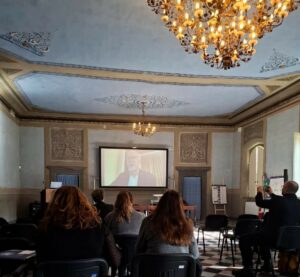
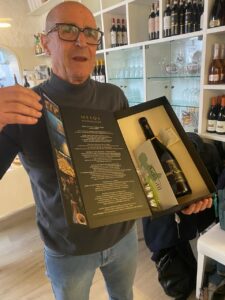
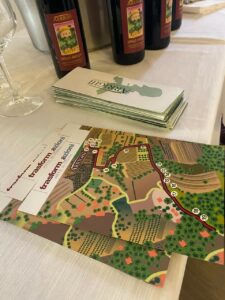
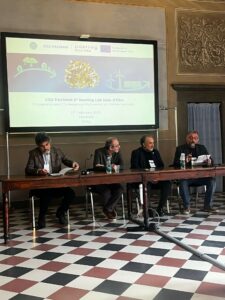
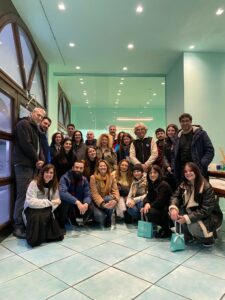
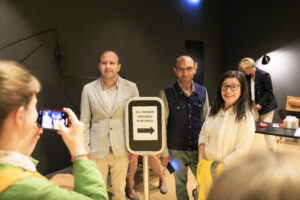
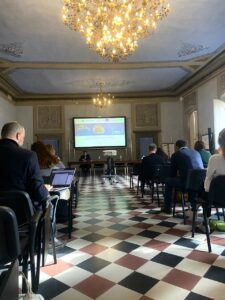
__________________________________________________________________________________
The program and all project details are available on the official websites and social media channels of CO2 PACMAN.
- Facebook: https://www.facebook.com/profile.php?id=61557383186450
- Instagram: https://www.instagram.com/co2pacman/
- LinkedIn: https://www.linkedin.com/company/102208512/admin/feed/posts/
- YouTube: https://www.youtube.com/@CO2PACMAN
Sito del progetto: https://co2pacman.interreg-euro-med.eu/

